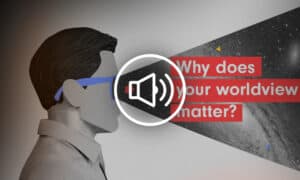In September 2013 Darrow Miller published a blog post—”School vs. Education: The Difference Matters”—that immediately jumped to the #1 position at DarrowMillerandFriends.com and stayed there.
We clearly hit a nerve with our readership. Education affects everyone, and something about that title drew lots of attention. That level of interest even prompted us to produce this (rudimentary) video version.
There’s more! We are excited to announce a forthcoming book inspired by this post. It is compiled by Darrow Miller and titled: “Don’t Let Schooling Stand in the Way of Education.”
About this book, Michael Myers, Ed.D says, “Miller and his expert contributors provide a sobering analysis of our current education dilemma and how we got here. He does not stop there, though, but instructs and inspires with clear, biblical strategies that can once again turn the world upside down. This book is a must read for Christian parents, educators, and pastors!”
Stand by for further news about this release. In the meantime, here’s the original blog post that started it all …
School vs. education. Do you know the difference?
Many young people who are thinking about college need to understand the difference between school and education.
Many parents need to consider whether their childrens’ schooling is getting in the way of their education. Because your schooling can actually interfere with your education.
Years ago, at L’ Abri Fellowship in Switzerland I heard Francis Schaeffer say “Don’t let your children’s schooling get in the way of their education.”
Actually, the expression was not original with Schaeffer. Many have attributed it to the American novelist Mark Twain. But it shows up as early as 1894. That’s the year science writer and novelist Grant Allen published his book, Post-Prandial Philosophy.
One year in Italy with their eyes open would be worth more than three at Oxford; and six months in the fields with a platyscopic [having a wide and flat field of view] lens would teach them strange things about the world around them that all the long terms at Harrow and Winchester have failed to discover to them. But that would involve some trouble to the teacher.
What a misfortune it is that we should thus be compelled to let our boys’ schooling interfere with their education! [emphasis added]
To say that Schaeffer’s comment stunned me is not too strong an expression. I had completed many years of school (grammar and secondary school followed by university) and had then enrolled in graduate school (read seminary). But I burned out spiritually during a year of seminary. Schaeffer’s comment about school vs. education started a process that transformed my view of learning.
School vs. education may be an accurate way to phrase the issue
What was Schaeffer saying? He was distinguishing between school and education. I had been to school. In fact, I had more schooling than most people in the world and more than many of my peers in the United States. I had put in my time in class. But I had not been educated.
As I reflected on all this I came to a number of conclusions, all of which come under the heading of school vs. education.
First, although I had insatiable questions as a child, I stopped asking when I grew older. My schooling did not encourage an inquisitive mind, critical thinking, and creativity. Rather, I learned to memorize and regurgitate what the teacher taught me. My schooling was about facts and figures, rather than understanding and moral formation.
Second, I realized I didn’t know how to think. I had never had an original thought! I grew up on comic books (images with few words). Today many children grow up with video games and TV (even more images and fewer words).
A third conclusion hit me while I was reading C.S. Lewis’ Narnia Chronicles, for the first time, at L’Abri. I had the distinct sense that I had not lived before that moment.
Fourth, I concluded that I had learned more in two months of informal study and work in the L’Abri community than in nine months of formal seminary education.
Education takes a lifetime
Sometimes school and education go together. But often it’s school vs. education.
- I had lots of schooling, but not much education. I came finally to understand the New Testament concept of repentance – metanoia – a fundamental change of mind. I repented, realizing that my mind needed to be born again. This led to a number of other convictions.
- I needed to be a life-long learner. I needed to learn from all my life experiences. I needed to take more opportunities to travel and meet people and learn from their lives and stories.
- I decided to always be reading several books. Now I always have a book with me to redeem the time while waiting for someone or something.
- I needed to become a life-long student of the Word of God, not just for my devotional life, but for all of life, including my work.
- I needed to take words and ideas seriously. Over the years I have developed a great love of words, their definition and history/etymology. This has brought me much pleasure.
The whole direction of my life changed as I considered the observation, “Don’t let your schooling get in the way of your education!”
What did Schaeffer mean by this statement?
Education is a life-long process. In fact, education doesn’t happen only in a classroom, a structured period of time, or formal instruction. Actually, education can take place anytime, anywhere, in the middle of a full life, in formal and informal ways. It takes place in the midst of creation, society, culture, and work. Education has to do with the cultural trinity: Truth, Beauty and Goodness.
Sometimes schooling can stand as a barrier to children learning, growing in wisdom and understanding, becoming educated in knowledge and virtue.
Recently I did a study of the words “schooling” and “education” using Webster’s 1828 Dictionary of American English and the Online Etymological Dictionary [OED]. The results were fascinating and confirmed the distinction Francis Schaeffer was making.
Schooling
In 1828, Noah Webster defined schooling as “instruction in school.” School is a place where instruction occurs.
Even more instructive is the etymology of the word “school.” The OED listing looks as follows:
The school is place where “leisure is enjoyed,” a place free from work. Literary studies take place after schooling. The idea of “‘students attending a school’ is attested from c. 1300; sense of ‘school building’ is first recorded 1590s.”
Education
While “school” denotes a building, “education” means the formation of a life. In 1828, Noah Webster defined education as follows:
Note that education is comprehensive. It deals with both the gaining of knowledge and the development of character – virtue. And the combination of virtue and knowledge leads to wisdom.
The OED dates the word education to 1530 and defines its use as “childrearing.” This comes “directly from Latin educationem (nominative educatio), from past participle stem of educare.” From 1610 the word was used “of education in social codes and manners; meaning ‘systematic schooling and training for work.’”
The words schooling and education have very different meanings.
The former relates to a place – a building, a place of leisure separated from work itself and from the preparation of a person for work.
The latter is a process of instruction that prepares the mind with knowledge and understanding, the heart with virtue, and the will with wisdom. It prepares people for life and work.
School vs. education: the modern word has lost this distinction.
Don’t let your schooling stand in the way of your education.





One Response
Many THANKS for this inciteful article. Eagerly awaiting the follow-up Publication. May The God of Heaven continue to use you to Instruct The CHURCH (i.e. The Christ-Called out People) for HIS Work even here on Earth.
THANKS.